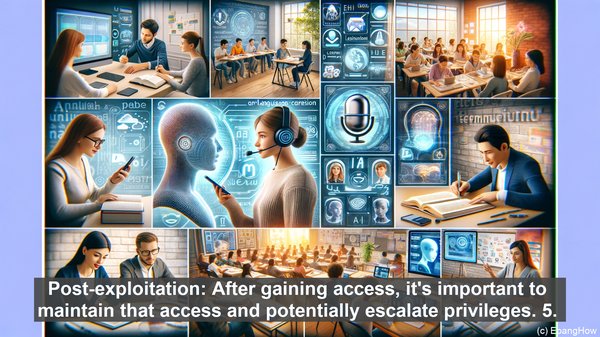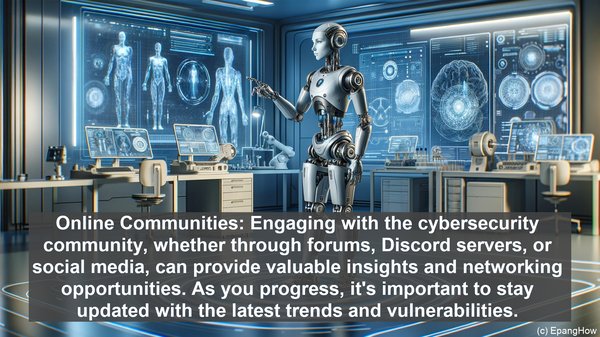Introduction: The Importance of Ethical Hacking and Cybersecurity
Hello everyone, and welcome to this article on ethical hacking and cybersecurity. In today’s interconnected world, where digital threats are ever-increasing, the need for skilled professionals in this field has never been more pressing. Ethical hacking, also known as white-hat hacking, involves identifying vulnerabilities in computer systems and networks, with the aim of securing them against malicious attacks. It’s a crucial aspect of cybersecurity, which encompasses the protection of digital assets, data, and privacy. In this article, we’ll delve into the fundamentals of ethical hacking and cybersecurity, using ChatGPT as our knowledgeable guide.

Understanding the Different Types of Hackers
When we think of hackers, the image that often comes to mind is that of a cybercriminal, exploiting vulnerabilities for personal gain. However, the world of hacking is much more nuanced. There are three main types of hackers: black hat, white hat, and gray hat. Black hat hackers are the ones we typically associate with malicious intent. They exploit vulnerabilities for personal gain, often engaging in activities like data theft, ransomware attacks, or even bringing down entire networks. White hat hackers, on the other hand, are the ethical hackers we mentioned earlier. They work to identify vulnerabilities and help organizations strengthen their security. Gray hat hackers fall somewhere in between, often operating in a legal gray area. They might identify vulnerabilities without permission but then notify the organization, acting as a sort of vigilante. Understanding these distinctions is crucial in the world of cybersecurity.
The Role of ChatGPT in Learning About Ethical Hacking and Cybersecurity
ChatGPT, powered by OpenAI’s advanced language model, can be an invaluable resource for anyone looking to learn about ethical hacking and cybersecurity. Its vast knowledge base, coupled with its ability to generate human-like responses, makes it an ideal guide. Whether you’re a beginner, seeking to understand the basics, or an experienced professional, looking for insights on the latest trends, ChatGPT can provide the information you need. It can explain complex concepts, provide step-by-step guides, and even recommend learning resources. However, it’s important to note that while ChatGPT is a powerful tool, it’s not a substitute for hands-on experience or guidance from experts. It’s best used as a supplement to your learning journey.
Key Concepts in Ethical Hacking: A Brief Overview
Ethical hacking encompasses a wide range of techniques and methodologies. Here are a few key concepts to get you started: 1. Reconnaissance: This involves gathering information about a target system or network, often using publicly available sources. 2. Scanning: Once you have some initial information, scanning helps you identify open ports, services, or potential vulnerabilities. 3. Exploitation: This is where you attempt to exploit a vulnerability, gaining unauthorized access to a system or network. 4. Post-exploitation: After gaining access, it’s important to maintain that access and potentially escalate privileges. 5. Reporting: Throughout the process, it’s crucial to document your findings and communicate them effectively to the relevant parties. These are just a few of the many concepts you’ll encounter in the world of ethical hacking.
Learning Resources: Where to Start and How to Progress
If you’re just starting your journey in ethical hacking and cybersecurity, the abundance of information available can be overwhelming. Here are a few resources to help you get started: 1. Online Courses: Platforms like Coursera, Udemy, and edX offer a range of courses, from beginner-friendly introductions to more advanced topics. 2. Capture the Flag (CTF) Challenges: These simulated hacking challenges provide hands-on experience and are a great way to apply your knowledge. 3. Books: There are several highly regarded books on the subject, such as ‘The Web Application Hacker’s Handbook’ by Dafydd Stuttard and Marcus Pinto. 4. Online Communities: Engaging with the cybersecurity community, whether through forums, Discord servers, or social media, can provide valuable insights and networking opportunities. As you progress, it’s important to stay updated with the latest trends and vulnerabilities. Following reputable blogs, attending conferences, and participating in bug bounty programs can help you do just that.

